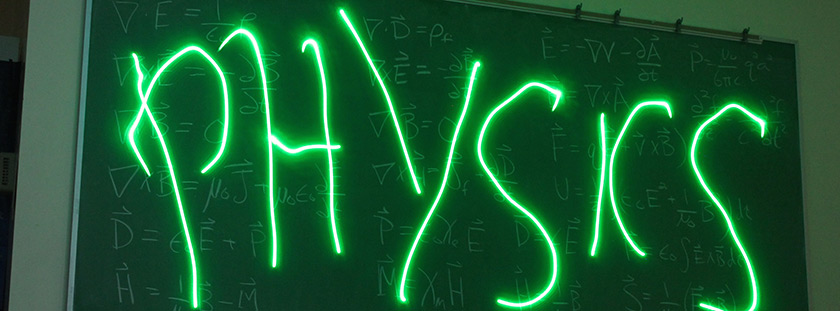Physics and Astronomy
Welcome to the Department of Physics and Astronomy at BGSU! Here we explore how the universe works – from the vastness of the cosmos to the nature of subatomic particles. We do that by studying the properties of matter and energy and the laws that govern them. It’s not surprising, then, that physics and astronomy have helped us to understand our place in space-time and led the way to new technologies. With society’s ever-increasing pace, the need for discovery accelerates the demand for trained physicists. Physicists and astronomers are exceptional problem solvers with skills that are in high demand in a wide range of scientific and engineering careers in industry, academia, and government.
Students actively participate with our faculty on cutting-edge scientific research in the fields of astrophysics, materials science, nano-science, solid-state physics, and computational physics. In addition, our Planetarium and Observatory offer opportunities for astronomy research, education, and community engagement activities. These experiences are crucial for developing the credentials that graduate programs and employers seek.
Events
For information on BGSU Planetarium shows open to the public, including dates, times, and titles please follow the link above. Planetarium Director Dr. Kate Dellenbusch and her staff offer rooftop observing at the BGSU Observatory after the evening shows, if the weather permits. You can learn more about this Stargaze program including days, times and other details at the Public Stargaze events page. In case you were wondering, Pudge loves Stargazing!
Will you be on campus for Preview Days this fall? Stop by the Physics & Astronomy table at the Bowen-Thompson Student Union. We will have tours of the department leaving the table at 10 and 11:30 to visit experimental Physics labs, and a tour of the astronomy facilities leaving at 10:45 which includes the Observatory telescopes and Planetarium.
The photo below of Comet Lemmon was taken on October 20, 2025 by our graduate student Logan Good (MS'27). He used a William Optics ZenithStar 81 telescope and ZWO ASI071MC Pro camera to take 26 exposures at 30 seconds each (13 minutes exposure total), which he stacked into a deep, high-resolution image using Siril/Lightroom/Photoshop for processing.
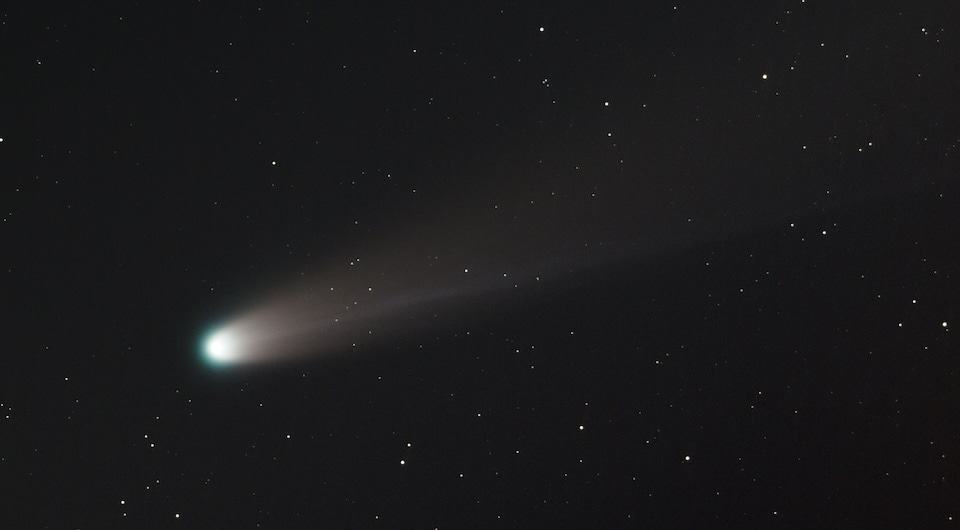
Did you see the total solar eclipse in BG on April 8, 2024? Check out our Eclipse Memories webpage to relive the big day!
Is Physics for you?
News and Stories
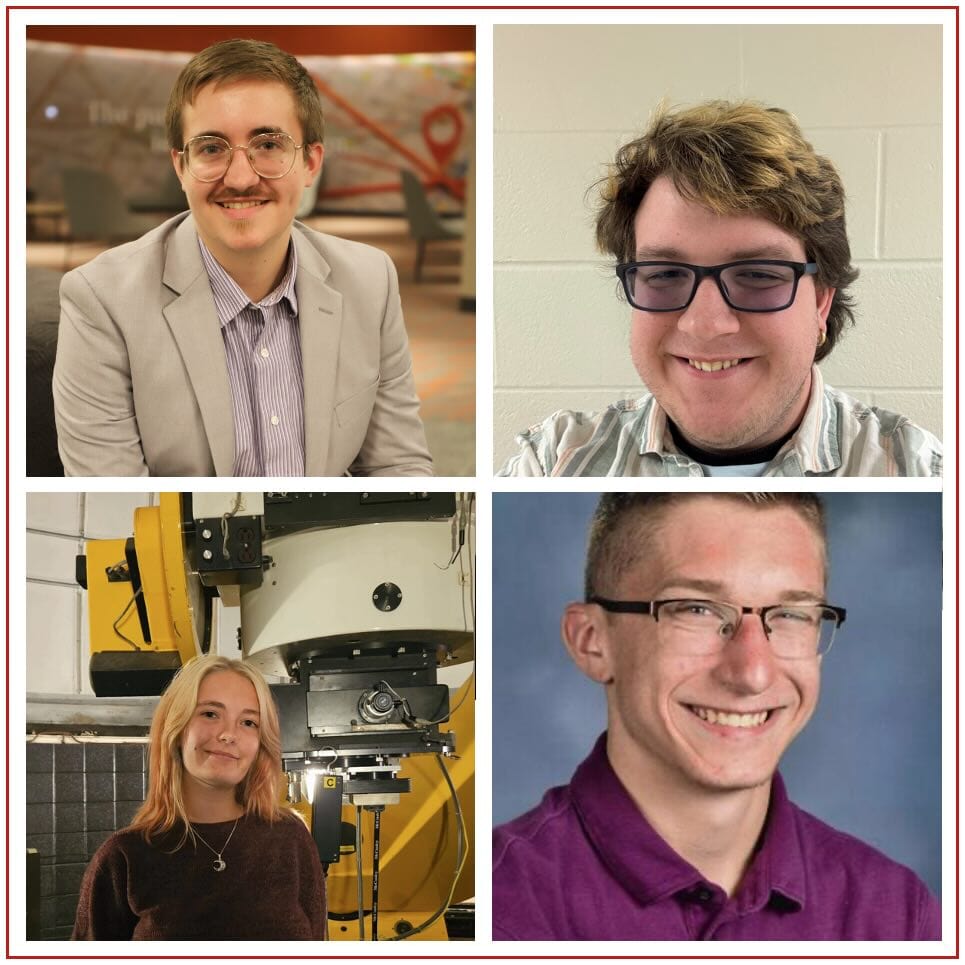
Student Awards
Congratulations to our award-winning students from 2025. Shown above are undergraduate Physics majors Devin Darr (UL), Ethan Dicke (UR), Katie Douglas (LL), and Brian Edmond, who won Overman Awards for academic excellence. David Tyson (below) received the Bowman Family Undergraduate Research Award for his work in Dr. Sun's lab on the synthesis of PbSe nanosheets, directly mentored by Ph.D. student Adam Roach. His recent results are promising and could lead to a publication in a chemistry journal.
Our graduate Overman Award winners are shown below, Thomas Judd, Madie Martin, Akul Rishi, Mohsen Sadrmohammadi, and KJ Stevens (clockwise from UL). Congratulations on your academic achievements!
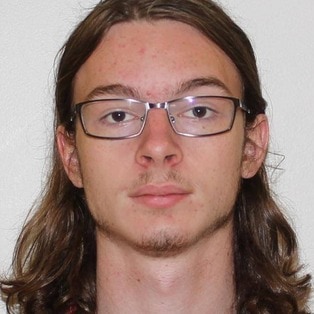
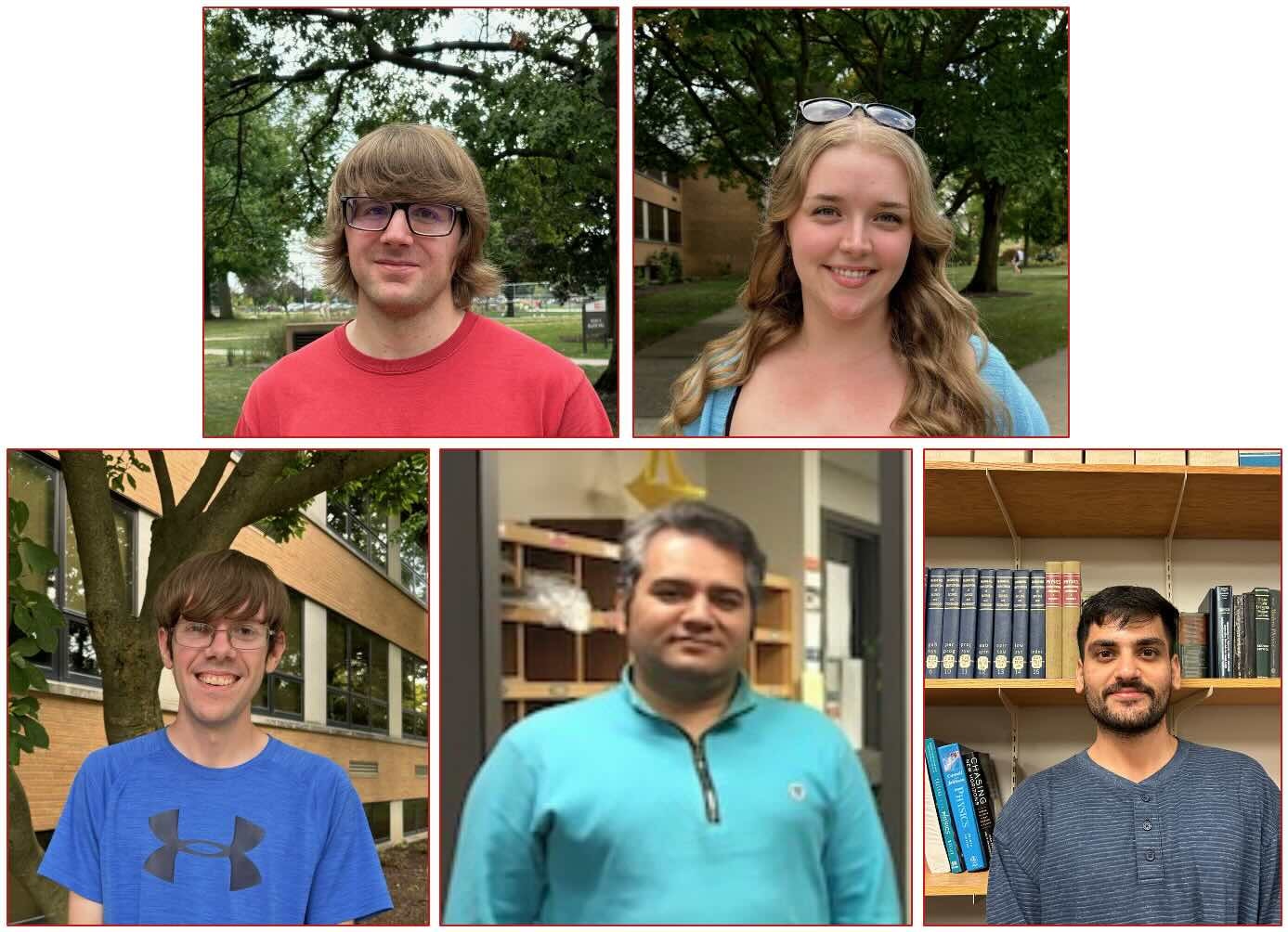
OSGC Scholarships
On April 4, 2025, BGSU physics majors Katie Douglas and Nick Doughman presented their year's astronomy research at the Ohio Space Grant Consortium Student Research Symposium in Cleveland. They are working with Dr. Layden on the light curves and period changes of RR Lyrae variable stars in the globular star cluster M107. Applications for up to 7 new OSGC Scholarships in STEM at BGSU are available every March.
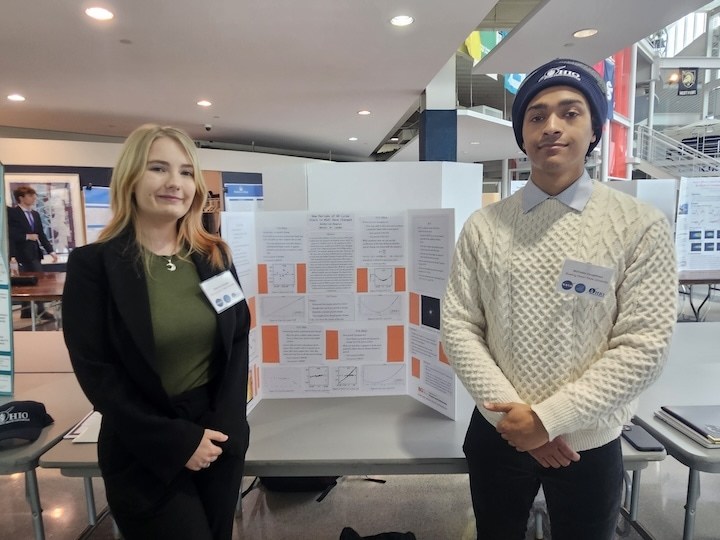
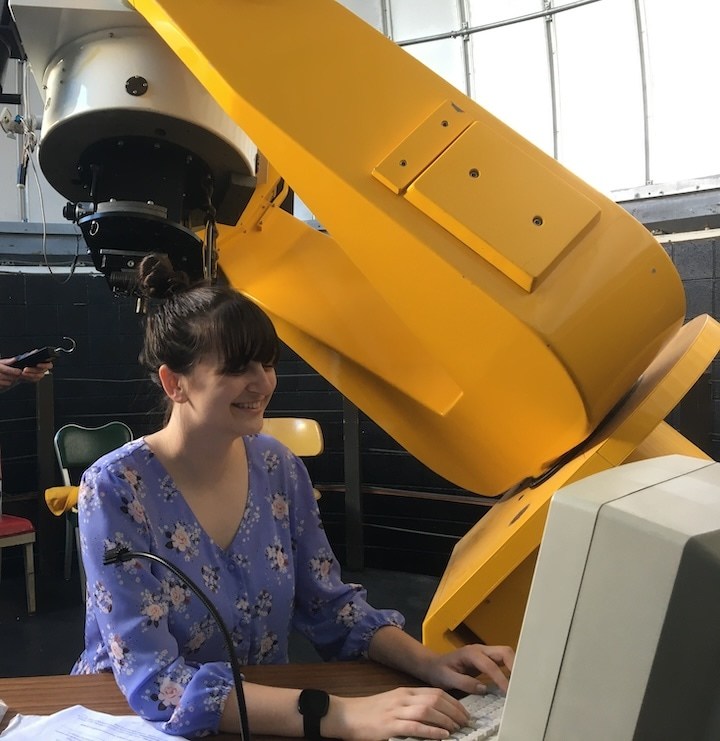
Science Writer
If you are frequent reader of our News and Stories section, you may recognize the initials "HHM" as the author of many articles seen here in the past year or two. We are overjoyed that Hannah Means graduated in May 2024 with a BS in Physics and a minor in Astronomy, and is progressing nicely with her planned career in science communication.
In addition to her STEM courses at BGSU, Hannah took a lot of English classes including creative writing, with the aim of building her own curriculum around science writing. Hannah also did a summer internship with the American Institute of Physics magazine Physics Today in summer 2023 in Maryland, and wrote articles for them through December 2024.
Over that time, Hannah published over a dozen news stories in this "trade magazine" which gets sent monthly to every physicist and astronomer with a membership in the AIP (circulation over 100,000 people!). A few favorites include:
- NASA cancels flight-ready lunar rover (13 December 2024)
- UK coalition gears up to demonstrate commercial viability of fusion energy (Physics Today 77 (12), 22–23 (2024) )
- What’s up with Planet Nine? (Physics Today 77 (11), 22–23 (2024) )
- Impending ship retirement leaves ocean-drilling researchers adrift (Physics Today 76 (9), 21–22 (2023) )
Hannah is excited to report that she has started working as a journal specialist at Frontiers (a scientific journal publisher) helping curate research article collections with researchers around the world. We wish her the best in her new role, and look forward to other science articles she authors!
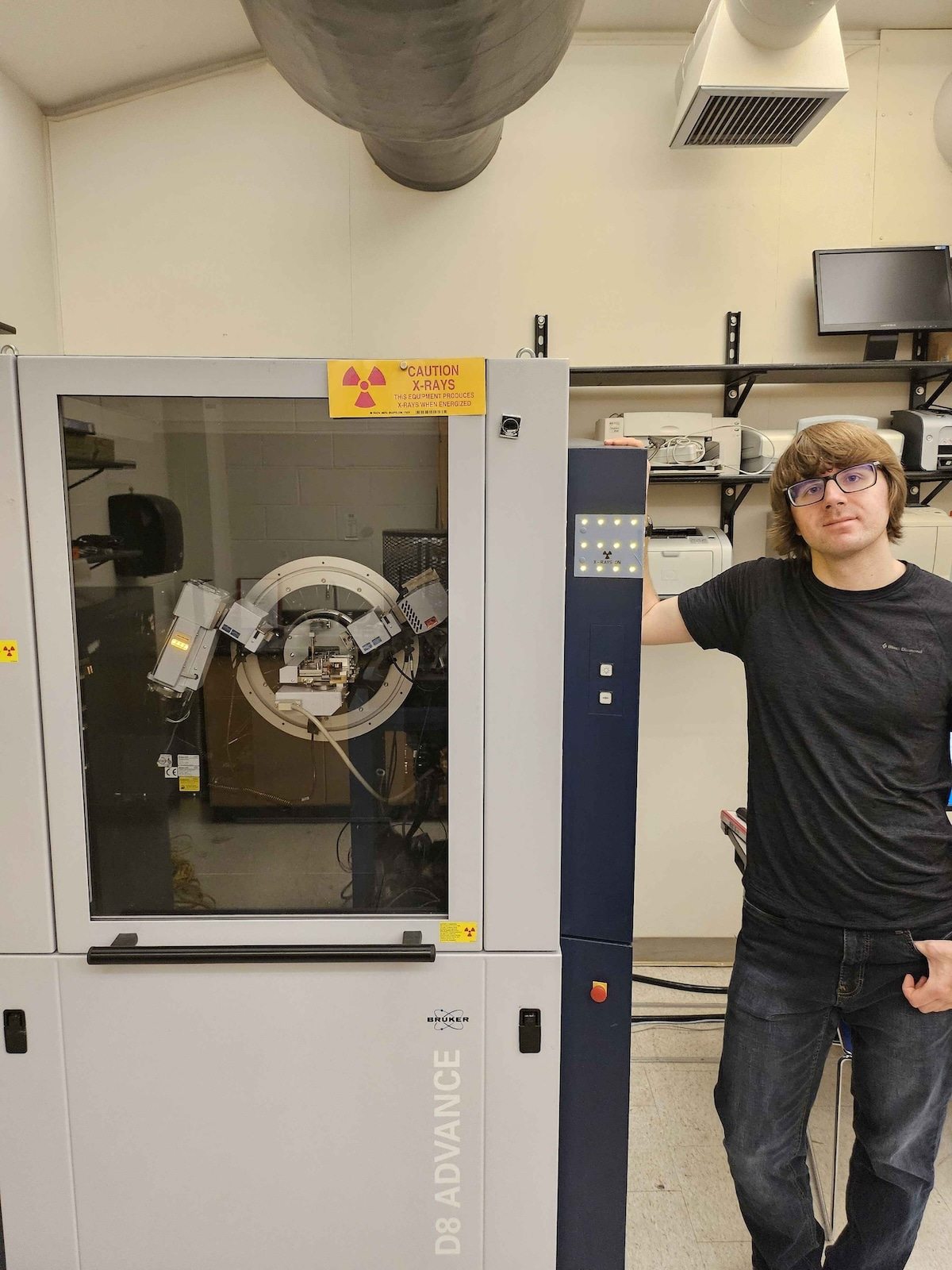
Nano-Technology Research
Dr. Sun’s research team is focused on advancing the understanding of two-dimensional lead sulfide nanocrystals, from the fundamentals of their synthesis to their applications in infrared lasers and light-emitting diodes—technologies essential for optical communication and sensing.
Among the team members, Thomas Judd, a recent recipient of the CURS award for his undergraduate work on the effect of ligands on the crystal lattice of colloidal nanosheets, has transitioned into graduate research. He is now exploring the use of machine learning algorithms to improve the synthesis methods of two-dimensional nanocrystals.
The group’s research builds on a strong history of collaboration with prestigious institutions, including Cambridge University, the University of Manchester, Argonne National Laboratory, and the Air Force Research Laboratory. These partnerships provide invaluable opportunities for both new and experienced team members, with many more collaborations anticipated in the future.
The work carried out by Dr. Sun’s group not only contributes to a deeper scientific understanding of these materials but also drives technological advancements. However, this progress would not be possible without a team of dedicated individuals who are equally passionate about solving the complex challenges that arise along the way.

First Light
Dr. McNeill and students Katie Douglas, Matt Fyfe, and Gwyneth Luster obtained the sequence of images above with the new Finger Lakes CMOS camera on the newly refurbished 20-inch telescope at BGSU. The small moving object above-left of center is the near-Earth asteroid 433 Eros, one of several objects McNeill's team will track in coming years.
Learning Outcomes
Upon completion of the baccalaureate degree, students in Physics are expected to be able to:
- Demonstrate thorough conceptual understanding of the basic field of physics;
- Describe and manipulate fundamental physical constructs and solve problems with mathematics and computational methods;
- Use basic experimental apparatus common to the study of physical phenomena;
- Communicate scientific ideas effectively, both orally and in writing.
Accreditation and/or Program/Cluster Review
Bowling Green State University [BGSU] is accredited by the Higher Learning Commission. BGSU has been accredited by the Higher Learning Commission since 01/01/1916. The most recent reaffirmation of accreditation was received in 2022 - 2023. Questions should be directed to the Office of Institutional Effectiveness.
The Physics program will undergo Program/Cluster Review during the Academic Year 2019-20.
Updated: 10/24/2025 05:11PM

